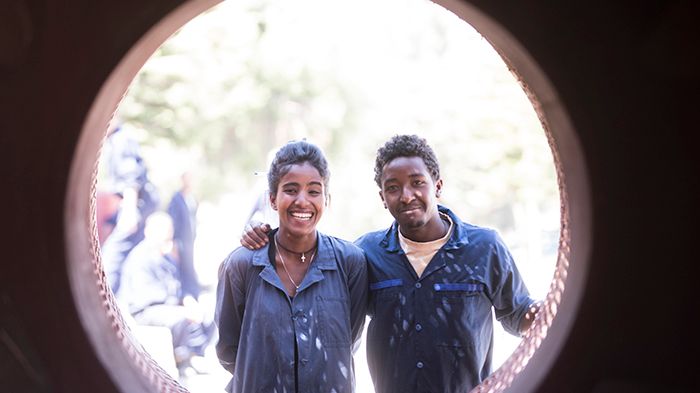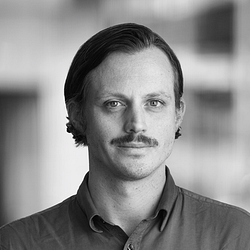
News -
Swedfund and Agenda 2030
Agenda 2030 is based on the premise that all aspects of sustainable development are interdependent and cannot be solved separately. This is what we want to describe using the equation: Everyone’s effort is required. Swedfund’s contribution is to build sustainable businesses where they are most needed.
Agenda 2030 (which includes the global goals, climate goals and financing) aims to eradicate poverty and hunger, realise human rights for all, achieve gender equality and empower all women and girls, as well as ensure permanent protection for the planet and its natural resources. We must create the right conditions for sustain - able development and inclusive growth. The greater the disparity created and the more people left outside the development which does take place, the greater the risk that success will be frustrated.
Agenda 2030 starts from the premise that social, economic and environmental issues are interlinked. Success in one area cannot be achieved without success in the others. Similarly, a commitment at all levels of society is required. Agenda 2030 is one of the most important tools people in the world have, particularly because it addresses, and so can be used by, every part of society. It is goals that are already used by companies, countries and non-profit organisations.
Progress and challenge
A look backwards historically shows that the global development has made major progress. At the beginning of the 19th Century, between 85 and 95 percent of the world’s population lived in what we today would define as extreme poverty. Today it is around ten percent. At a global level, average life expectancy has risen by 20 years since 1960, infant mortality has fallen from 18 percent to under five percent and average income per person has almost trebled. 1
The goals set for 2015, the Millennial Goals, were also seen as ambitious when they were adopted, but the fact is that several were achieved. The goal to halve the proportion of people who live in extreme poverty were achieved five years before target. The goal to halve the proportion of people without water was achieved, as was the goal of having an equal number of girls as boys begin school. 2
The exception is the goal of ecological sustainability. That went backwards, and continues to go backwards. Carbon dioxide emissions have increased by 50 percent since 1990, loss of biodiversity is increasing at a worrying rate and many ecosystems are threatened. 3
To achieve the global goals and meet all people’s needs within the boundaries of the planet, resources must be shared so that everyone will benefit, in a way that does not harm the climate and the ecosystem. A substantial range of resources are required for this, from capital to expertise, protection of human rights and effective rules and institutions. Aid plays and will continue to play an important role in creating the conditions for weak countries and regions to drive development, at the same time as the need for investment in the poorest countries is growing in significance.
Swedfund’s role in Agenda 2030
Swedfund is a Development Finance Institution (DFI), its mission is to fight poverty by investing in sustainble companies. Along with other Development Finance Insti - tutions, Swedfund has a crucial role in helping increase the number of sustainable businesses in the world’s poor - est countries. Businesses which lay the foundations for increased employment, tax revenue and access to renew - able energy. Poor countries are in need of investments to create job opportunities through companies. There are many entrepreneurs and microbusinesses on the African continent. 4 At the same time, the need for more jobs is great. The age structure of the economically weakest regions means that many young people will enter the labour market over the next decade. Creating jobs requires long-term and sustainable investments which contribute to responsible businesses. Swedfund invests in large companies and in small and medium-sized businesses, and we encourage female business and companies which contribute to climate-smart solutions.
Swedfund and other development finance institutions are making a difference. Our investments and how we manage these investments lay the groundwork for viable and sustainable companies in countries and regions were the needs are the most urgent. This generates concrete results which contribute to equation 2030 and help accelerate the implementation of the UN’s sustainable development goals.
1 Blir Världen Bättre? [Will the world be better?] UNDP in collaboration with Staffan Landin, 2016, (http://www.globalamalen.se/blirvarldenbattre/), pp 4ff, downloaded 20 February 2018. 2 Blir Världen Bättre? [Will the world be better?] UNDP in collaboration with Staffan Landin, 2016, (http://www.globalamalen.se/blirvarldenbattre/), pp 28ff, downloaded 20 February 2018. 3 Blir Världen Bättre? [Will the world be better?] UNDP in collaboration with Staffan Landin, 2016, (http://www.globalamalen.se/blirvarldenbattre/), pp 30, downloaded 20 February 2018. 4 Paul Collier: Rethinking development finance for Africa – Development Finance, April 2017
